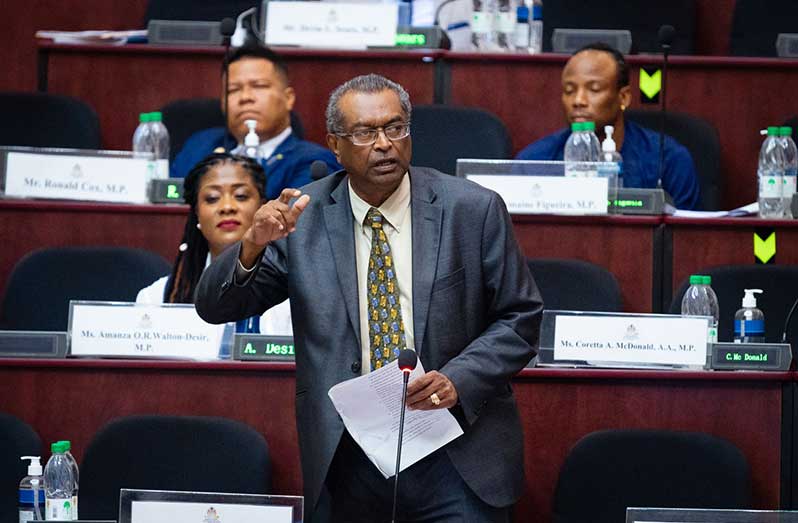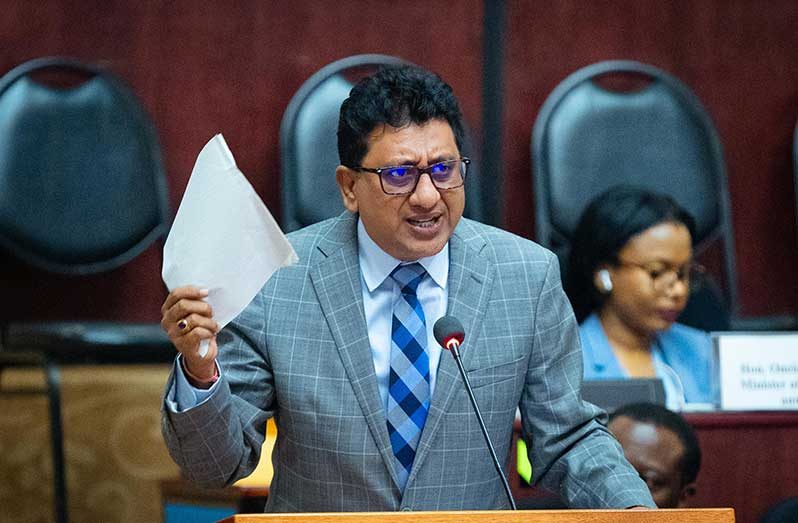-set to transform Guyana’s criminal justice system
REFERRED to as a critical piece of legislation that should have been implemented some time ago, the Criminal Law Procedures (Paper Committal) Bill was, on Monday, passed in the National Assembly.
The Criminal Law Procedures (Paper Committal) Bill No. 7 of 2024 was read for a second time and passed during the 83rd sitting of the twelfth parliament.

Presenting the bill for its second reading was Minister of Legal Affairs and Attorney General, Anil Nandlall S.C. who stated that the bill will contribute to reducing the time persons charged with offences spend on remand while awaiting trial in the High Court.
According to the Bill’s explanatory memorandum, it provides for the abolition of preliminary inquiries and the substitution of paper committals which involves reviewing the evidence and arguments presented by both the prosecution and the defence in written form as opposed to conducting oral in-person hearings.
Speaking directly on the move to paper committals over preliminary inquiries, Nandlall stated that there are currently some 621 persons on remand in the prison system and noted that he has no doubt that more than 60 per cent of those persons are awaiting the conclusion of a preliminary inquiry.
“No doubt these and similar factors would have been the main reason for the move to paper committals across the Commonwealth and, of course, the Caribbean,” he said.
Against that backdrop, he told the house that, last year, when the Caribbean Court of Justice (CCJ) officials visited Guyana and he met with them, they requested that the government consider resorting to a full paper committal system.
The CCJ also lobbied for this move during a public engagement with members of the legal fraternity in Guyana and other relevant stakeholders here.
Specific provisions in the bill cater for the admission of evidence and further set out a timeline for which all credible evidence should be filed by prosecutors and counsel on behalf of the accused.

Meanwhile, rising to give their support to the bill were opposition members, Khemraj Ramjattan, and Geeta Chandan-Edmond.
Ramjattan, during his presentation, noted that he supported the bill and added that it was one that should have been enacted a long time ago.
He went on to add that he supported for the reason that it will do away with a lot of the delays at the preliminary stage and added that he hoped that delay would not be scuttled onto the trial stage.
Chandan-Edmond told the house that she was fully in support of the bill and indicated that while preliminary inquiries had their legal place, over the years they have produced outcomes that have led to the delay in cases.
Meanwhile, the Attorney General highlighted that the passage and further enactment of the bill would bring tremendous relief to the workload and bring speed to the disposal of cases, thus having a positive impact on the country’s growing prison population.
Subsequently, following its third reading and amendments made to some clauses, the act was passed in the National Assembly.



.jpg)









